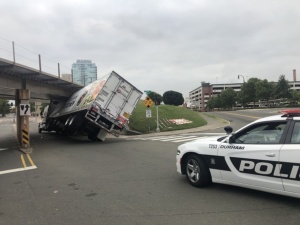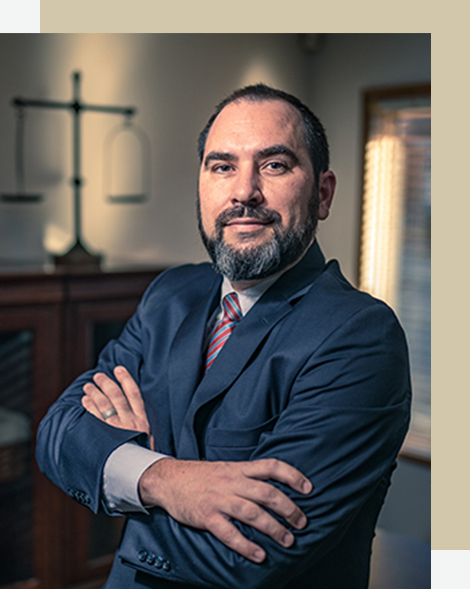What Happens When Unqualified Truck Drivers Crash?

The
Federal Motor Carrier Safety Administration (FMCSA) sets rules and regulations that govern trucking operations in the United States. Unlike federal FMCSA trucking rules and regulations, however, several agencies and departments enforce Illinois’s state trucking regulations.
These agencies are:
- The Illinois Department of Transportation
- Department of Revenue
- Illinois Commerce Commission
- Illinois State Police
- Secretary of State
- Illinois General Assembly
- Illinois EPA Bureau of Air
- Illinois Pollution Control Board
One qualification for commercial truck drivers in Illinois is to have the proper training and licensure.
Qualification for Commercial Driver License (CDL) in Illinois
To obtain a CDL in Illinois, there are several requirements that an applicant must meet, and meeting them all requires taking several steps before obtaining the CDL. These requirements fall into medical, residency, knowledge, and skills categories.
As basic requirements, applicants must:
- Be at least 18 years old to apply and, if approved, to drive a commercial vehicle within the state of Illinois
- Be at least 21 years old to drive a commercial motor vehicle across the borders of Illinois, to carry hazardous materials, or to transport any passengers
- Not hold more than one driver’s license, and the DMV must not have revoked, canceled, or disqualified your license in Illinois or any other state
- Meet the medical requirements of the FMCSA and pass a medical exam
- Pass a series of written examinations to obtain your Illinois Commercial Learner’s Permit (CLP)
- Provide proof of citizenship in the state of Illinois or permission to work in the United States if you are not a U.S. citizen
- Sign a certification that you are not subject to any of the CDL disqualifications listed in the regulations
- Speak and read English
Negligent Hiring of Truck Drivers
Illinois law imposes a duty on an employer to use reasonable care in hiring only competent and qualified individuals. This is true in the case of business owners and truck companies who hire commercial vehicle drivers. Trucking companies have a legal obligation to ensure that they reduce or eliminate the risk of harm from their truck drivers.
Trucking companies meet the legal requirement by hiring only licensed, adequately trained truck drivers they have screened for potential medical problems that could affect their driving ability, and doing background checks to uncover any criminal or reckless driving history.
Federal law also requires trucking companies to conduct proper investigations when hiring drivers to determine or uncover any potential drug and alcohol violations in the past. These might be indicative of potentially ongoing drug and alcohol abuse that would certainly pose a risk to other motorists and worse.
A trucking company or employer who fails to comply with these rules and regulations when hiring is negligent and will be held liable for any harm caused by the negligently hired truck driver. If a negligently hired truck driver causes a crash that injures someone, the injured person can pursue a claim against the driver and the trucking company as the employer.
In making their case, the injured person must prove that the employer knew or should have known that the truck driver was unqualified for the driving position and posed a danger of harm to others. The injured person must also demonstrate that the employer knew or should have known of this disqualification at the time when the trucking company hired the truck driver and that the actions of the unqualified driver ultimately caused the injured person’s injuries.
Crashes That Unqualified Drivers Might Cause
It is a major risk that unqualified truck drivers would cause crashes, and they do regularly.
Collisions and misconduct commonly associated with unqualified drivers include:
Damages Available From Collisions Caused by Unqualified Truck Drivers
Illinois law provides a mechanism for victims of crashes caused by negligently hired drivers and their loved ones to obtain compensation for the harm they suffer. This compensation includes costs for past and future medical care expenses, physical rehabilitation costs, lost income, property damage, emotional pain, and suffering. Lawmakers intend for the compensation to allow the victim to recover as much as possible for the losses they suffered.
A crash involving a truck can be much worse than regular vehicle crashes, and losses can include:
- Medical bills for current and future treatment
- Lost income and future lost earnings
- Pain and suffering
Seeking Legal Help From a Truck Accident Lawyer
A truck accident lawyer can help the crash victim obtain the most compensation they deserve, given the nature and circumstances of their collision. When one seeks compensation for their injuries, the first step is to deal with the insurance company that covers the truck driver’s employer.
Victims might receive a call from a claims adjuster from the insurance company immediately after a collision occurs. It is never a good idea to speak to the claims adjuster without first consulting with a truck accident lawyer. A claims adjuster may often come across as friendly, but he or she is just doing what the insurance company trained them to do, and that is to convince a crash victim to settle their truck crash claim for as little money as possible.
The right thing to do is to politely decline to discuss the collision or a settlement and call a truck accident lawyer who can advise you on the value of your claim. The lawyer will also conduct the necessary investigation to make sure you have a strong case to bring to the insurance company to prove liability and losses.
If you have questions about a crash involving an unqualified truck driver, then speak to a local truck accident lawyer for advice and answers to your questions.
Adam B. Lawler
Attorney at Law / Partner
Adam Lawler is the founder of Lawler Brown. Adam is a 2004 graduate of Saint Louis University School of Law. Adam worked for a local firm until founding the Lawler Brown in 2009. Adam’s practice areas focus in Personal Injury, Business, Real Estate, Probate/Trust/Estate Administration and general litigation.
Author's Bio
 The Federal Motor Carrier Safety Administration (FMCSA) sets rules and regulations that govern trucking operations in the United States. Unlike federal FMCSA trucking rules and regulations, however, several agencies and departments enforce Illinois’s state trucking regulations.
These agencies are:
The Federal Motor Carrier Safety Administration (FMCSA) sets rules and regulations that govern trucking operations in the United States. Unlike federal FMCSA trucking rules and regulations, however, several agencies and departments enforce Illinois’s state trucking regulations.
These agencies are:
